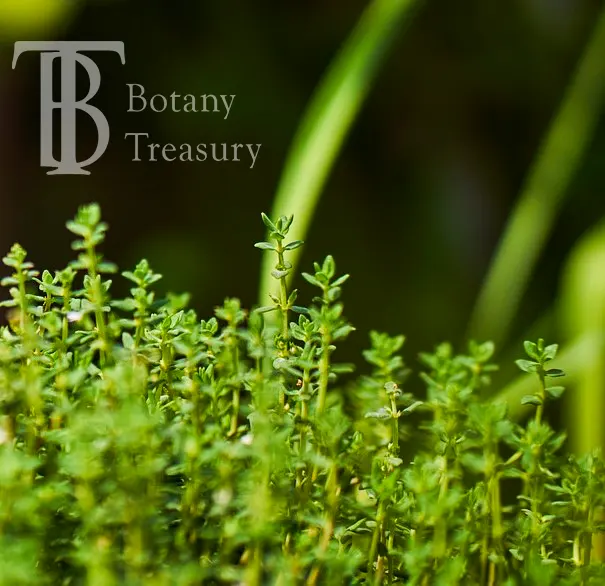
Thyme آویشن
Thyme (Thymus vulgaris) is a fragrant and flavorful herb. It has a complex aroma that combines the earthy, minty notes of regular thyme with hints of oregano, savory, and even a touch of citrus. The flavor is warm, slightly peppery, and very aromatic. Thyme contains thymol, a powerful antioxidant and antimicrobial compound. Studies suggest it may have anti-inflammatory, antiviral, and antifungal properties. The herb is also a good source of vitamins A and C, calcium, iron, and manganese.
Thyme contains several active ingredients that contribute to its various biological and pharmacological properties. The main constituents of thyme include:
- Thymol: The most abundant component, which is responsible for its antiseptic, antifungal, and antibacterial activities.
- Carvacrol: Carvacrol is also an active ingredient with antimicrobial and antioxidant properties.
- Linalool: Found in thyme, linalool is known for its antioxidant and antimicrobial activities.
- α-Terpinene: This compound is also present in thyme and exhibits antimicrobial and antioxidant properties.
- 1,8-Cineole: Another significant component, 1,8-cineole is known for its antioxidant and antimicrobial activities.
- γ-Terpinene: This terpene is present in thyme and has antimicrobial and antioxidant properties.
- p-Cymene: This compound is also found in thyme and contributes to its antimicrobial and antioxidant activities.
These active ingredients are responsible for thyme’s diverse biological and pharmacological effects, including its antiviral, antibacterial, antifungal, and antiseptic properties, as well as its antioxidant and anti-inflammatory activities.
